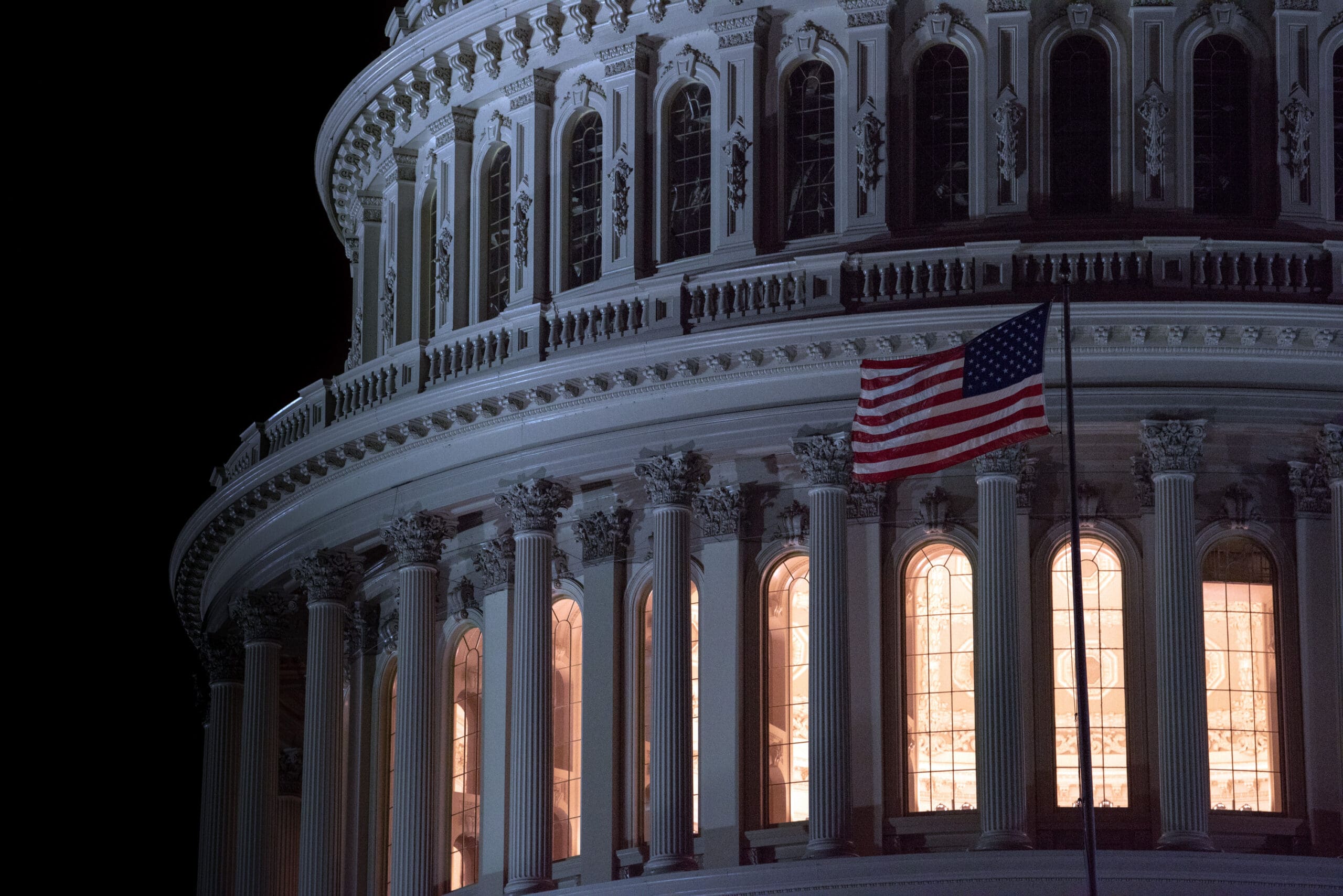Products You May Like
A new report from the Congressional Budget Office (CBO) predicts that, after the upcoming expirations of the TaxA tax is a mandatory payment or charge collected by local, state, and national governments from individuals or businesses to cover the costs of general government services, goods, and activities.
Cuts and Jobs Act (TCJA), income tax revenue will jump 11 percent in 2026 and another 10 percent in 2027 before returning to normal growth between 3 percent and 4 percent annually. While the higher revenue from individual taxpayers may help the country’s fiscal situation, it would come at an economic cost.
To be sure, the fiscal situation certainly needs help. The widening gap between government spending and tax revenues will reach $1.9 trillion in 2024—27 percent larger than the CBO just projected in February, mostly due to new government spending. From 1974 through 2023, spending averaged 21 percent of GDP but will reach 24.2 percent in 2024, while revenues averaged 17.3 percent of GDP and will hover there at 17.2 percent in 2024. Over the next decade, deficits will total $22 trillion, with debt held by the public reaching $50 trillion in 2034, worth about 122 percent of GDP.
Those drastic increases in debt and deficits come even with the higher projected revenues from the expiring TCJA provisions. As they expire, the CBO estimates total federal government revenue will rise from 17 percent of GDP in 2025 to 18 percent of GDP in 2027. That’s mostly driven by higher individual income taxAn individual income tax (or personal income tax) is levied on the wages, salaries, investments, or other forms of income an individual or household earns. The U.S. imposes a progressive income tax where rates increase with income. The Federal Income Tax was established in 1913 with the ratification of the 16th Amendment. Though barely 100 years old, individual income taxes are the largest source of tax revenue in the U.S.
revenues, climbing from 8.6 percent of GDP in 2025 to 9.8 percent in 2027. Indeed, Tax Foundation estimates that if the TCJA is allowed to expire, about 62 percent of taxpayers would see higher tax burdens.
But the jump in revenues won’t be free. The CBO also predicts that TCJA expirations will lower the labor force participation rate and reduce output due to higher tax rates.
If lawmakers were to make the TCJA’s lower individual income taxes permanent instead, it would permanently increase the return to labor, boosting incentives for workers and leading to more total hours worked and more output. Tax Foundation estimates that permanence for the individual and estate taxAn estate tax is imposed on the net value of an individual’s taxable estate, after any exclusions or credits, at the time of death. The tax is paid by the estate itself before assets are distributed to heirs.
changes would boost GDP by 0.6 percent and employment by 800,000 full-time equivalent jobs. However, revenue would be much lower, dropping by $3.6 trillion conventionally and $3.2 trillion dynamically.
As lawmakers consider ways to rein in budget deficits, they should recognize that higher taxes come with trade-offs: less economic growth, business investment, and employment. Now is the time for lawmakers to pursue long-term fiscal sustainability, but primarily through reduced government spending, not increased taxes. However, to the extent that a deficit reduction package includes modest tax increases, a better-designed tax system should be the goal. While neither full expiration nor a deficit-financed full extension of the TCJA would be appropriate, lawmakers should consider the incentive effects of whichever tax reform they pursue. Because taxes affect the economy, they also affect the sustainability of debt reduction.
Stay informed on the tax policies impacting you.
Subscribe to get insights from our trusted experts delivered straight to your inbox.
Share
